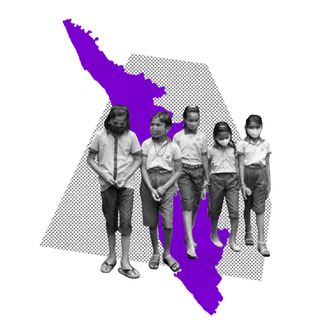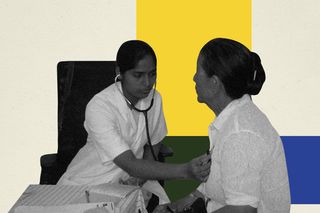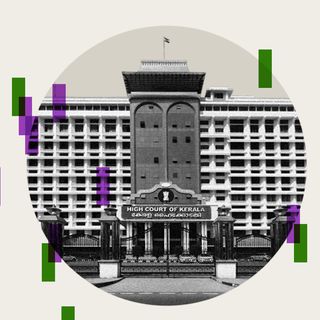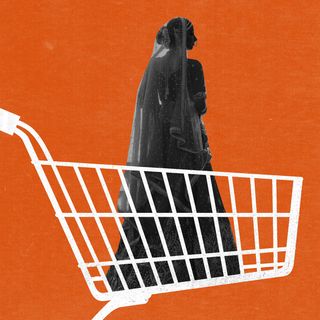
Almost 1 in 4 Patients Faced Discrimination Due to Caste, Religion: Oxfam Survey
35% of women also underwent physical tests by male doctors without another female in the room, violating the Charter of Patients’ Rights.

A new survey by Oxfam India paints a disconcerting picture of the country’s healthcare system. Turns out, almost one in every four Indians may have faced discrimination by medical professionals on the basis of caste and religion.
Conducted between February and April 2021, the pan-India survey examined 3,890 responses. 33% of surveyed Muslim individuals admitted to being discriminated against in healthcare settings on the basis of their religion; 30% on the basis of an illness, or health condition they live with; and 13% on the basis of their caste. More than “20% Dalit and Adivasi respondents,” for instance, struggled to access equitable healthcare. The findings highlight the prevailing biases and disparity prevalent in the way patients are treated.
Is it really astonishing, then, that a woman from a privileged caste in India outlives a Dalit woman by 15 years due to caste-based inequalities? And according to a 2019 report, children from scheduled castes and tribes were found more likely to die before the age of five than children from more privileged castes. Clearly, inequality in healthcare has long-term, broad-ranging consequences that numerous reports have made us aware of year after year.
“The [present] survey shows that the basic rights of patients in India are being routinely denied in healthcare facilities, for the poor and middle class alike,” Amitabh Behar, CEO of Oxfam India, said in a statement. “Skewed power dynamics with respect to class, caste, religion, and gender between the healthcare providers and patients deepen existing structural inequalities in the healthcare system,” Behar added.
The present report also found evidence of practices to ensure the safety and dignity of women being flouted. Almost 35% of female patients underwent physical examinations by male practitioners — without any other woman being present in the room. This violates the Charter of Patients’ Rights, released by the Ministry of Health and Family Welfare in 2018. The charter requires hospitals to ensure the “presence of such female attendants in case of female patients.” Subsequently, in June 2019, the health ministry urged states and union territories across the country to adopt the charter. More than two years have passed since.
Related on The Swaddle:
Casteism Linked to Stunted Growth in Indian Children, Research Shows
“Covid19 pandemic has brought the issue of patients’ rights at the forefront with hospitals openly violating patients’ rights and making healthcare even more inaccessible to the people,” a report from January notes. There is no doubt many people are probably unaware of the rule, which makes it easier for healthcare providers to simply flout it without consequences.
Denying female patients their right, while unfortunate, is just just one of the many, many violations of the charter that came up in the survey.
31% were denied “case papers, patient records, investigation reports for treatment/procedure by the hospital” despite requesting for them; 50% were never informed of estimated costs of their recommended treatments at the outset; and a jarring 74% of the survey respondents mentioned their healthcare professionals simply wrote up prescriptions without explaining their medical condition to them, or educating them about its nature and cause. From the right to dignity (in life as well as in death), the right to informed consent to the right to information — India’s healthcare system appears to be replete with transgressions of patients’ rights.
“When I asked the doctor what having fibromyalgia means, or what the treatment plan will be like, he just said: ‘It will be nothing. You can just Google it. You don’t have to come back,'” Swati Agarwal, who was diagnosed with fibromyalgia, told The Swaddle last week describing her experience with the medical professional who diagnosed her. “And this was a renowned neurologist in Mumbai. I’d gone for good medical care all along. Even so, it was difficult to get a diagnosis for my condition, to begin with. Then, getting treatment also turned out to be very tricky,” she said.
Related on The Swaddle:
Tell Me More: Talking How Caste And Gender Influence Access to Health With Dr. Sylvia Karpagam
Even if the more-aware patients decided to bring the violators of the charter to book, the process of doing so can be demotivating. “There must… be a proper grievance redressal mechanism to deal with violations of the charter… At present, while people can approach the police and the courts in this regard, it is time-consuming and expensive,” Anjela Taneja, Inequality, Health, and Education lead at Oxfam India, who also led the research, told Scroll.in.
To make sure the onus of ensuring compliance isn’t entirely on wronged patients, Oxfam India has recommended that the health ministry set up a mechanism to review the implementation of the charter in all states and union territories.
Another recommendation is for the National Medical Commission to include mandatory modules on the rights of patients in the healthcare curriculum. With their social biases seeping into the way they treat their patients, perhaps, education could help them address their internalized prejudices.
“Untouchability is still real, and so, doctors may sometimes be reluctant to hold a Dalit person’s hand to check their pulse… Similarly, doctors may be reluctant to explain the nature of diseases and treatments to Adivasis, believing that they are not likely to understand the information,” Taneja said.
Devrupa Rakshit is an Associate Editor at The Swaddle. She is a lawyer by education, a poet by accident, a painter by shaukh, and autistic by birth. You can find her on Instagram @devruparakshit.
Related


Being in Love Doesn’t Imply Sexual Consent: Kerala HC
